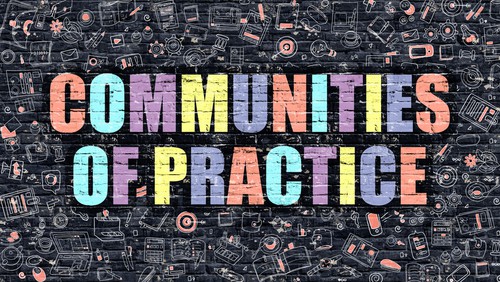- in Blog , Oxford Review by David Wilkinson
- |
- 1 comments
How to use The Oxford Review to develop your staff

Develop your staff
In my last post I explored the most frequent use our members make of our research briefings which is for CPD purposes.In this article I want to look at how to use The Oxford Review to develop your staff, leaders and managers. The second most frequent use of our research briefings by members is for the direct development of others. This tends to fall into a number of categories:
- Face-to-face or online learning scenarios
- Direct distribution to staff
- Developing evidence-based practice
- Handouts
- Newsletters and corporate internal blogs
- Developing the boards thinking
- Radio and podcasts
- Communities of practice
Face-to-face or online learning scenarios
The first and most obvious way we found members using our research briefings for direct staff or employee (often leadership and management) development purposes. This tends to be the case in larger organisations where the appropriate briefings are used in either face-to-face interventions or more frequently these days, in online communities of practice or in learning management or knowledge management systems. In the latter case, approximately 45% of organisations use our consultancy and facilitation services to choose and directly input the materials on their systems and in about a third of those, we facilitate discussions in the community of practice for the client. The oxford review is an excellent, never ending source to develop your staff.
In some organisations, mainly smaller ones, we distribute the research briefings directly to members of staff via email and give each direct and individual access to our archive. Each employee in effect becoming a direct member of The Oxford Review through a company scheme. This appears to be particularly the case in organisations without either a dedicated learning function or without a Learning Management System. This is a great hands-off way to develop your staff without any effort, time or resources on your behalf – we do it for you.
Developing evidence-based practice
The Oxford Review is at the heart of many organisation’s evidence-based practice efforts ( see our Essential Guide to Evidence-based Practice). Not only are our research briefings the basis of evidence-based practice, we also publish a lot of research on evidence-based practice and act as consultants to organisations trying to embed and develop evidence-based practice.
Other organisation use the research briefing to inform their class based training curriculum, often distributing the briefings in the training manuals, handouts and other materials. This is particularly popular in higher and further education where lecturers use The Oxford Review briefings as handouts.
Newsletters and internal corporate blogs
Another very common approach appears to be incorporating a synopsis of researching briefings that have particular organisational relevance in newsletters, blogs, tweets and other electronic media. As one L&D director put it “Because they are so interesting and make you think, we use them as ‘stealth’ development articles in our monthly internal magazine”. Another user, HR business partner, Carol Ormiston, said “we used to struggle to find enough to fill our newsletter every month. Not any more. The constant supply of briefings has made my job really easy”.
Blogs and news letters are a more informal and stealth way to develop your staff.
One CEO of a small financial services company of about 50 gets the briefings delivered directly to all her managers and board members. “The ones about organisational development and leadership are often discussed at our meetings. In fact, recently there hasn’t been a single meeting without something from your papers coming up. They are excellent for helping us grow the firm and think through issues we haven’t considered before”.
One large organisation in the US with its own online employee ‘radio’ station now has a research briefing slot once a week, where they read out and discuss a briefing with a couple of employees and managers. “Our ‘evidence-based half hour’ on Friday lunchtimes has actually got the second largest audience during the week. We put the research briefing we are discussing on the webpage so people can download it. It is very popular and we get hundreds of downloads a week, which really surprised us. We are thinking of either extending the programme or doing two a week.”
Some organisations use the research briefings in their communities of practice and learning groups, usually online. In a few companies we have set these up for the organisation and run a ‘done-for-you’ where we seed the discussions and facilitate the community of practice in the early days until the group are ready to do it themselves. CoPs or Communities of Practice are an ideal and deep way to develop your staff and we have extensive expertise in developing and seeding CoPs in many industries. We support you all the way. You get more than just research briefings with The Oxford Review. You get personal contact and help.
The use of our research briefings, infographics, special reports etc. in the direct development of staff and students in organisations is growing rapidly and is the second most popular use of our materials.
How could you use our research briefings to develop your staff?
Be impressively well informed

Get the very latest research intelligence briefings, video research briefings, infographics and more sent direct to you as they are published
Be the most impressively well-informed and up-to-date person around...









3sluggish